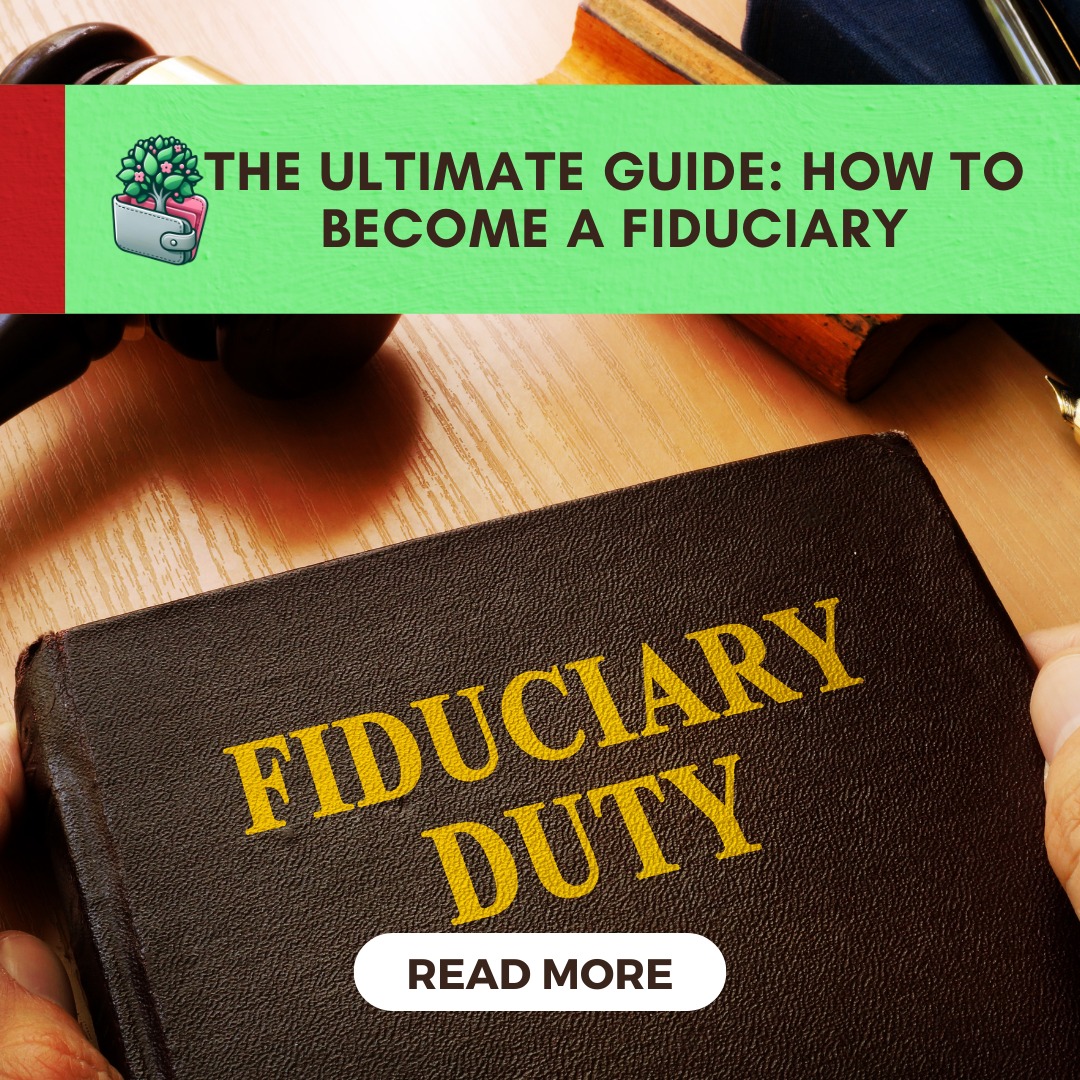Want to know how to become a Fiduciary? But do you feel lost in the complex world of their responsibilities? As a fiduciary, you’re entrusted with safeguarding the assets and interests of others. However, with so much at stake, it can be overwhelming to ensure you’re fulfilling your duties effectively.
In this comprehensive guide, we’ll delve into the essential aspects of becoming a fiduciary. From understanding your legal obligations to mastering best practices for managing assets, we’ll provide you with the knowledge and tools you need to succeed.
Whether you’re a seasoned professional or just starting your journey as a fiduciary, this guide will equip you with the knowledge and confidence to excel in your role. Let’s embark on a journey toward becoming a trusted and effective fiduciary.

Understanding the Role of a Fiduciary Advisor
Before answering the question “how to become a fiduciary advisor,” one must first know what that is. A fiduciary is a financial professional who holds a position of trust and responsibility. An advisor is legally obligated to act in the best interest of their clients, prioritizing their needs above their own. This fiduciary duty is a cornerstone of the financial services industry, such as for financial advisor experts and insurance agents. Clients are ensured that they receive unbiased advice and guidance.
Fiduciaries play a vital role in helping individuals and organizations achieve their financial goals. They provide comprehensive financial education, assist with planning for the future, and offer tailored investment strategies.
By adhering to their certification and strict fiduciary standard, fiduciaries foster trust and confidence in the financial services industry. They must have experience deemed satisfactory by their clients or employers.

As written in Forbes , “These professionals, referred to as fiduciaries or fiduciary financial advisors, are key to knowing that your money and financial decisions are being guided in a responsible manner.”
Becoming a Certified Financial Fiduciary
To gain certification as a Certified Financial Fiduciary (CFF), individuals must first enroll in a certification program approved by the National Association of Certified Financial Fiduciaries (NACFF). The certification program involves attending a one-day training course and successfully passing an online exam. More specifically it’s a closed-book, proctored exam.
Additionally, CFF candidates must agree to adhere to the Certified Financial Fiduciary Code of Conduct. To maintain their certification, they are required to complete 10 hours of annual continuing education.
The total cost of the CFF class, exam, and certificate is $1,295, with a non-refundable application fee of $450.

Financial Planning for Fiduciary Advisors
Planning for a professional fiduciary requires a comprehensive approach to creating personalized investment recommendations for their clients. By carefully considering factors such as risk tolerance, financial goals, and time horizon, fiduciaries can develop tailored strategies and supporting documentation that align with their clients’ unique needs. Moreover, ongoing monitoring and adjustments of investment portfolios are essential to ensure that they remain on track and adapt to changing market conditions.
Fiduciaries continuing education can specialize in various areas of financial planning, such as retirement planning, estate planning, or tax planning. This specialization allows them to provide tailored advice and guidance to their clients based on their specific needs and goals.
To remain effective in their roles, fiduciaries must continuously stay updated with the latest developments in the financial industry, including changes in investment strategies, regulatory requirements, such as criminal background check, and finally economic trends.

Career Opportunities as an Investment Adviser
Investment advisors, especially those continuing education, play a crucial role in helping individuals and institutions make informed financial decisions. They offer expert guidance on a wide range of topics, including investment strategies, risk management, and retirement planning. With the growing complexity of financial markets and the increasing need for personalized financial advice, career opportunities for investment advisers are on the rise.
- Individual Clients: Providing financial advice and services to individuals and families.
- Institutional Clients: Managing investments for organizations, such as corporations, pension funds, and endowments.
- Financial Planning: Developing comprehensive financial plans to help clients achieve their goals.
- Portfolio Management: Overseeing and managing investment portfolios for clients.
- Wealth Management: Providing high-net-worth individuals with personalized financial services.
- Entrepreneurship: Starting their own investment advisory firms or working as an independent business.
- Financial Institutions: Working for banks, investment firms, or other financial institutions.
To Wrap Up on How to Become A Fiduciary
For those continuing education, answering the question of “how to become a fiduciary” heavily depends on your ability to provide exceptional service to your clients. You can make a positive impact on their financial lives through building strong relationships, offering personalized advice, and prioritizing their best interests.
Becoming a certified financial fiduciary is a rewarding career path that requires dedication, knowledge, and a commitment to ethical standards.
By understanding your legal obligations, mastering asset management techniques, and staying up-to-date with industry trends, you can establish yourself as a trusted and respected professional.
Frequently Asked Questions
Can anyone be a fiduciary?
Not everyone can be a fiduciary. It requires specific qualifications, training, and adherence to ethical standards.
What qualifications are needed to become a fiduciary?
Typically, you need certification (like CFF), which requires training, passing an exam, and ongoing education. A background in finance is also beneficial.
How much does it cost to become a certified fiduciary?
The cost includes a certification fee, which can be around $1,295, plus an application fee of $450.
How long does it take to be a fiduciary?
The process varies but generally involves completing a certification program, passing an exam, and gaining the necessary experience, which can take a few months to a year.


